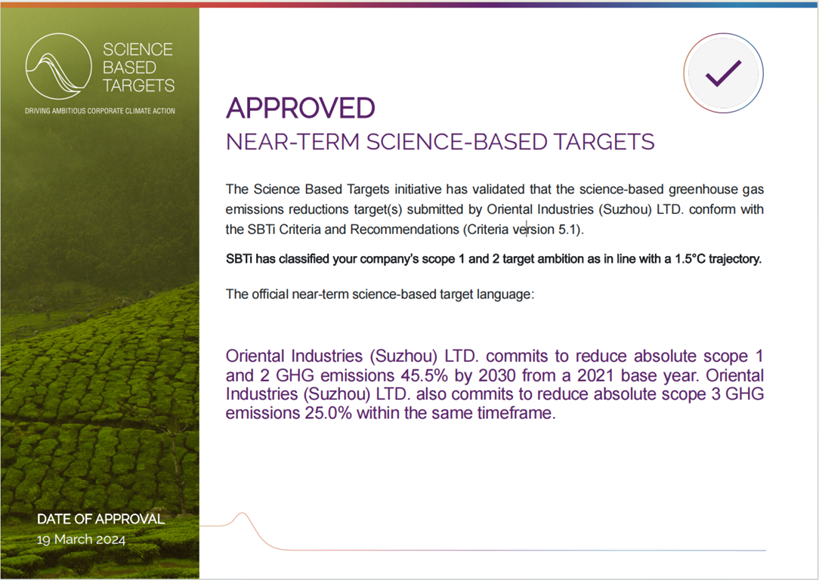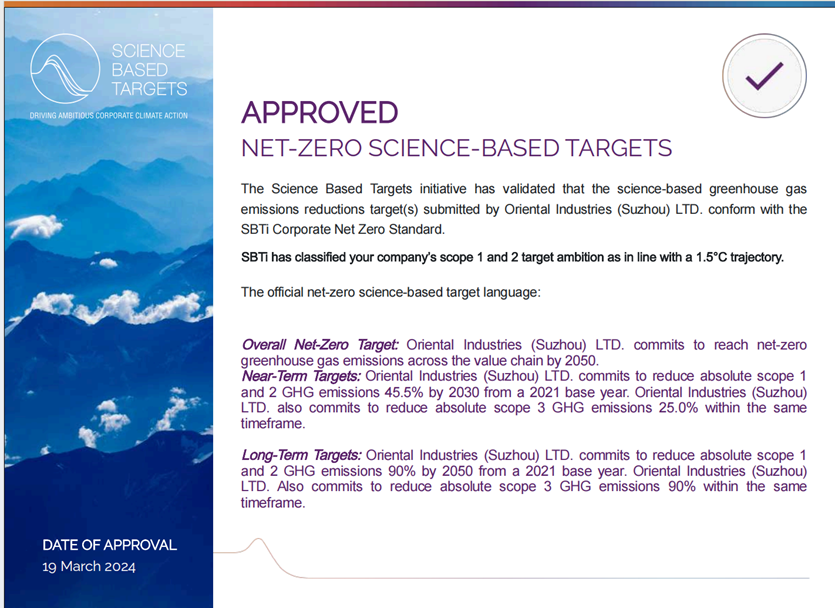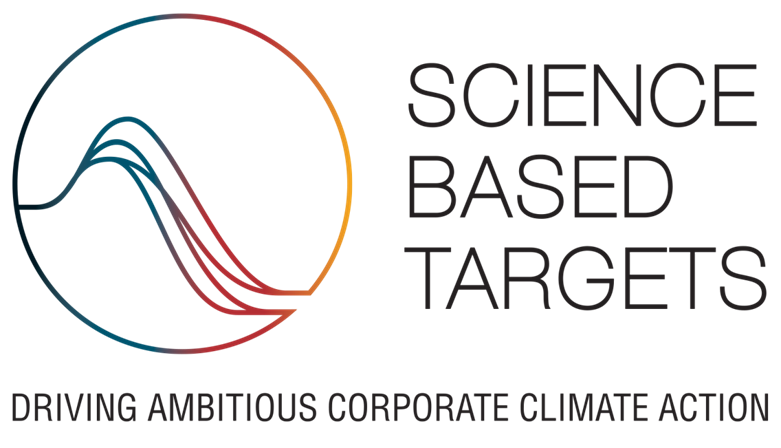Approved by SBTi :This is a major milestone for OTIZ towards sustainable development and climate change mitigation
Recently, Oriental Industries (SuZhou) Ltd. officially announced that the near-term greenhouse gas emission reduction targets and net zero targets set by the company have been officially approved by the Scientific Carbon Target Initiative (SBTi) and published on its official website, which marks an important step in the commitment of OTIZ to combat climate change.

OTIZ formally joined the Science-based Carbon Target Initiative (SBTi) in March 2023 and committed to setting near-term emission reduction targets and net zero emission targets that are consistent with climate science. Following a rigorous review process, our near-term and net-zero targets were formally endorsed by the SBTi in March 2024, with the following specific targets:
· Oriental Industries (SuZhou) Ltd. is committed to achieving net zero greenhouse gas emissions across its value chain by 2050.
· Near-term target: To reduce absolute Scope 1 and Scope 2 GHG emissions by 45.5 per cent by 2030, using 2021 as the base year, while we commit to reduce absolute Scope 3 GHG emissions by 25 per cent.
· Net Zero target: To reduce absolute Scope 1 and Scope 2 GHG emissions by 90 per cent by 2030, using 2021 as the base year, while we commit to reduce absolute Scope 3 GHG emissions by 90 per cent.

OTIZ has always been committed to becoming a company that can achieve sustainable development and be responsible to the environment, society, employees and stakeholders. We firmly believe that corporate success and social responsibility are closely linked. In recent years, we have been implementing low-carbon commitments, committed to the development of green products and the concept of sustainable management while developing our business.
As an enterprise certified by SBTi, we will actively lead the industry change. In the next step, we will formulate a series of specific action plans according to the promised goals, from our own operation and production to the optimization of energy structure and to the linkage of upstream and downstream suppliers, and carry out the emission reduction work in all aspects. In the future, we will optimize our production process and improve production efficiency. By optimizing our energy structure through the distribution of distributed photovoltaics, the purchase of renewable energy and the use of alternative fuels such as biofuels, we also consider the use of renewable energy as one of the principles of supplier evaluation while doing our own green emission reduction. We are ready to work with our suppliers, partners and stakeholders to achieve global greenhouse gas reduction targets.

The SBTi is an international initiative jointly launched by the Centre for Global Environmental Information Research (CDP), the United Nations Global Compact (UNGC), the World Resources Institute (WRI) and the World Wide Fund for Nature (WWF) to support companies in setting aggressive emission reduction targets based on the latest climate science and to accelerate the process of reducing emissions. To halve emissions by 2030, achieve net zero emissions by 2050, and strive to limit global warming to 1.5 ° C.
